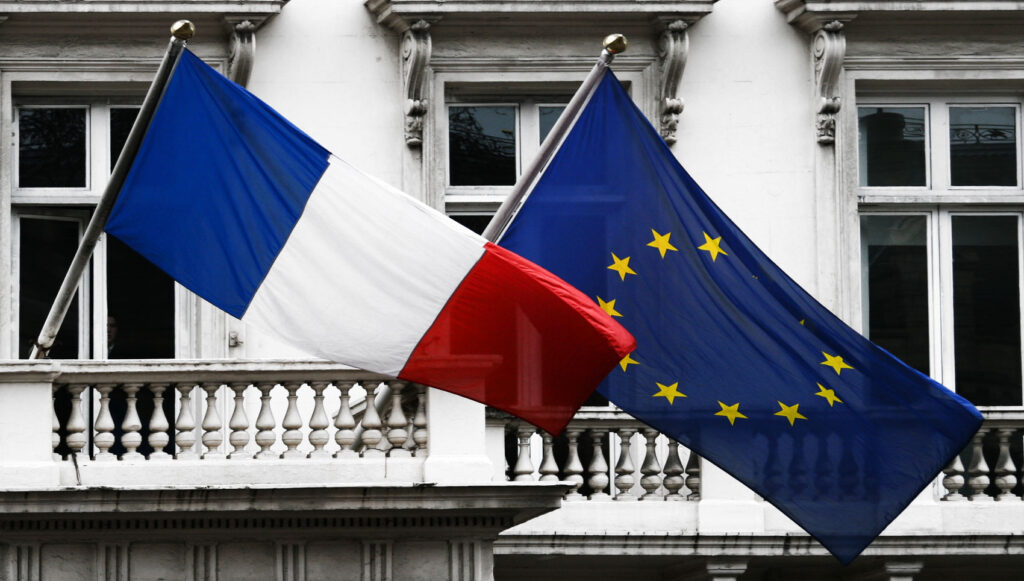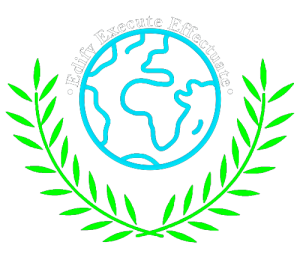Authors – Abhishek Kulkarni, Swati Kumari, Samriddhi Jain
Keywords – France, Brexit, EU, Integration, Leadership, Economy, Trade, Politics, Policy, Diplomacy, Eurozone, Sovereignty, Negotiation, Globalization, Governance
Introduction
On 23 June 2016, Brexit was marked by the UK’s decision to leave the European Union. When the UK determined that there were 17.4 million in favour of leaving against 16.1 million who voted to remain, then it officially declared its exit from the European Union (EU), setting the ground for the negotiations for an official exit in January 2020 (Whyman & Petrescu, 2017). Britain became the first country to withdraw from the EU. The EU allows member states a vast domestic market and negotiates on behalf of states’ trade relations with outside countries and regions (Davies & Studnicka, 2017). After Brexit, France and Germany are now the leading powers in the European Union.
France is one of the most important countries in the EU due to its economic strength, political influence, military power, and central geographic location. The radical shift caused by Brexit has revealed significant differences of interest between France and the UK. The problem in these countries is the similarity of the structures of their economies, provoking rivalry, for example, in the areas of financial services, the aviation and armaments industries, and fisheries. France is the only country with a majority of people who feel that Brexit will not negatively impact the EU.
Brexit changed the EU’s power balance, strengthened France, and brought about economic and political changes. This paper will explore France’s role before and after Brexit took place. It will also shed light on what the future looks like for the country in the context of the United Nations and internally.
European Integration after World War II
After World War II, continental Europe had many uncertainties, mainly the diminished European economies, failing industrial machinery, and, most importantly, the question of Germany. Various thinkers had different interpretations of the uncertainties but agreed on “European Integration”. Sir Winston Churchill called for a “United States of Europe” that would look past the wounds of the past in order to build a European family (Churchill, 1946). Robert Schuman, the foreign minister of France, and Jean Monnet, a French civil servant, also vied for European integration. Schuman wanted potential economic integration between France and Germany through coal and steel production. As noted by Hitchcock (1997), Schuman believed that by modernising the industrial sector in such a way, both could move forward from warring states to a peaceful settlement.
Schuman and Monnet’s views eventually materialised as “Schuman’s Plan”, leading to the creation of the European Coal and Steel Community (ECSC), which subsequently opened to other Western European countries. As these Western European countries were trading materials that were essential for war, coal and steel, conflict was “not simply unthinkable, but materially impossible” (Hitchcock, 1997). Eventually, in 1957, the Treaty of Rome was signed. It established the European Economic Community (EEC). This treaty created a governmental organisation that would be related to market regulations (Fligstein & Sweet, 2001). There was now cooperation between the countries of Europe in the economic level.
Gradually, this cooperation led to shared decision-making power and a reduction in nationalism. The EEC laid the foundation for what is now known as the European Union (Fligstein & Sweet, 2001). In 1985, the Schengen Agreement was signed, which allowed visa-free travel within the signatory countries (Schengen Agreement, 2001). Though the model was highly idealistic, it was not impossible. The Maastricht Treaty eventually formed the European Union in 1993.
France’s Role in Pre-Brexit European Union
After the European Union was officially formed in 1993, France has always influenced it. In the pre-Brexit EU, France and Germany were strong traditional allies with partnerships in several areas, building on decades of cooperation since the 1950s. While France was very influential, its influence multiplied with its partnership with Germany. The three, France, Germany, and the UK, were the top powers in the EU, with political, economic and social influence.
To maintain their collective influence, France and Germany continued their long-established partnership. The British and the French held significantly differing stances on the EU. France consistently advocated for a more politically integrated Europe with strong social protections, which directly contrasted with Britain’s preference for a looser, more market-focused union. This emphasised a strong want for a more unified European identity.
This idea of the French was seen clearly during former President François Mitterrand’s regime. Mitterrand’s vision for the European Union included a deep-rooted Western Europe with France as its core, a loose association with Central and Eastern Europe, and a common currency for a small number of homogenous Western European states (Troitiño et al., 2017). On the other hand, the British approach often put an emphasis on economic liberalism and individualism. This is reflected in two ways. First is the support for the single European market while often resisting deeper political integration (Wallace, 1997). Second, the British never shared the Euro currency with the other EU nations, which the other member states were not happy about.
As France is in the centre of Europe, they were able to spread their influence in Eastern Europe, as well as in the Iberian Peninsula. The French could influence EU expansion into Eastern Europe through this geographical advantage. Moreover, France has successfully made French one of the official languages of the EU, furthering their identity and culture in the process. One key EU policy that France was instrumental in shaping was the Common Agricultural Policy. This policy became one of the EU’s most significant and groundbreaking initiatives.
There have also been several challenges in the French-EU relationship. For instance, in 2005, the French people rejected the proposal for a European Constitution. Concerns about losing national identity and sovereignty played a crucial role. Many voters feared that further European integration would dilute France’s national identity and diminish its control over domestic affairs (Jérôme & Vaillant, 2005; Milner, 2006).
Despite these issues, France was a key decision-maker in the EU before Brexit. It often acted as a counterweight to the British. The French policy and, by extension, the EU policy differed heavily from the British, ultimately contributing to Brexit.
France’s Role in Post-Brexit European Union
After the UK left the European Union in January 2020, a paradigm shift happened within the EU. Given France’s historical connection to European integration, it is very understandable that they would be assuming the EU’s leadership. Nevertheless, since announcing a potential Brexit, the French have been unwilling to provide the UK with a favourable deal (Poli, 2016). France has been acting in their interests. They wish to emerge as a political and economic power within the new EU landscape. Helped by the economic boom during 2016-2019 (Mulya & Miranda, 2020). They remain the only nuclear power in the EU and hold strategic influence. The country’s share of the population, along with Greece, Italy, Portugal and Spain, has nearly doubled from 25 per cent, furthering importance (Krotz & Schild, 2018).
Politically, French presidents, particularly Emmanuel Macron, have reacted to Brexit in an unfavourable way to the British. Macron emphasises restoring the EU to its original purpose of European integration and cooperation (Mulya & Miranda, 2020). He also focuses on Eurozone reforms of parliament and budget (Krotz & Schild, 2018; Özdemir, 2021). Özdemir (2021) writes that Macron sees Brexit as a revival of a true continental and authentic Renaissance, which, funnily enough, is the name of his party. However, France is not the only country contending for power in the post-Brexit EU. There is also Germany. Former German Chancellor Angela Merkel reportedly told Macron she was “tired of picking up the pieces” after his disruptive politics, and Germany rejected Macron’s proposals for Eurozone reform, with German Defense Minister Annegret Kramp-Karrenbauer denouncing his vision of European strategic autonomy as an “illusion” that could threaten NATO (Özdemir, 2021).
France and Germany also have major disagreements. France’s multi-billion-euro deficits contrast with Germany’s ongoing trade surpluses; their divergent defence strategies—France supports European strategic autonomy, which Germany sees as potentially undermining NATO—and their different geopolitical stances—France is more open to Russia while Germany is cautiously sceptical—are some examples of these differences (Özdemir, 2021). Despite these challenges, France has positioned itself as the de facto head of the EU, particularly crucial in developing and delivering aid to post-COVID Europe.
Nevertheless, challenges remain plenty. Questions of Euroscepticism are raised, potentially paving the way for a “Frexit” in the future. Additionally, the rise of ultra-right nationalism all throughout Europe and France might be another issue in the integration and cooperation within the Union.
France’s Leadership in EU Economic, Trade, and Climate Policies
France has long been a key player in shaping the trade landscape of the European Union with its strategies and policies. The historic Treaty of Rome connecting six independent nations of Western Europe led to the emergence of the EEC in 1957, which had an unlimited scope in the economic field. France’s contribution as a founding member of this community enabled not only economic cooperation but also free trade among these nations (Toepke, 1981).
In January of 1962, France advocated for a Common Agricultural Policy, which contributed 25 per cent of the agricultural budget but, thanks to its large volume of exports to non-EU states, benefited from 85 per cent of the expenditure. This policy became a cornerstone of EU trade and was significant in the development of the EU economy (Webber, 1998). The Single European Act of 1986 aimed to establish a genuine single market in Europe, which was strongly advocated by France under the leadership of François Mitterrand, former President of France. This facilitated the free movement of people, goods, services, and capital, which was achieved in 1993 (France and the Building of Europe, 2023). The Maastricht Treaty of 1993, which amended the EEC Treaty to form the EU, was negotiated by several European countries, including France. Aiming to shape the future of economic cooperation in Europe, it introduced a provision for the Economic and Monetary Union (EMU), suggesting the establishment of a single currency (Laursen & Vanhoonacker, 2019). France and Germany, as the two largest EU members, have significant resources due to their embedded bilateralism.In times of crisis, such as the Eurozone and the Covid-19 pandemic, their leadership is vital to eliminate the risk of political deadlock and lead to recovery efforts. This creates a flow of demand from the EU for leadership and a supply of leadership by the two countries (Schramm & Krotz, 2023).
With the goal of creating an EU Digital Single Market, France focuses on cyber stability and international security, pushing for a strong digital future for Europe (Ministère de l’Europe et des Affaires étrangères, 2019). Brexit led to significant reductions in the EU’s trade patterns with the UK, but France managed to be least affected by it, maintaining its trade flows with the UK. France has been contributing to the climate finance for the developing countries giving €7.2 billion in 2023 (Ministère de l’Europe et des Affaires étrangères, 2024). It has also taken various initiatives to commit to sustainability, net-zero goals and industrial growth with the EU Green Deal (European Commission Approves €2.9bn French Scheme to Support Green Industries, 2024).
France’s Evolving Position: Internal Politics and International Influence
In the contemporary context, there has been an enormous uprising of right-wing, ultra-nationalist political parties in the European Union. In seven different EU countries: Czechia, Croatia, Finland, Hungary, Italy, the Netherlands and Slovakia, there are far-right governments. In Hungary and the Netherlands, these governments have only recently come into power. Although France’s leadership is still dominated mainly by Macron’s Renaissance party, there is now a strong contender in the form of the National Rally (RN) and its Parliamentary leader, Marine Le Pen. In the recently concluded EU Parliamentary elections, the RN performed exceptionally well and led most of the polls.
The RN’s ideology follows a highly nationalist, anti-immigration and reduced EU influence doctrine. This is concerning as France, post-Brexit, is the only EU member with veto power in the United Nations Security Council. The RN is extremely Eurosceptic, believing French identity supersedes the shared EU identity. They criticise the EU on mainly two grounds: a) the EU is a direct threat to national legacy through their supra-national ideas and institutions, and b) the EU is the primary facilitator of globalisation, which leads to migration, which in turn hurts the French national identity (Lorimer, 2022).
However, not everything is negative, as France’s economy is deeply integrated with the EU. Moreover, it plays a central role in all EU defence initiatives. All of this deeply counters possible Euroscepticism. Furthermore, evidence of this can be found outside of the EU. France alone is the sixth largest global contributor to UN peacekeeping operations, while as a whole, the EU members are the second largest (United Nations Peacekeeping, 2023).
Despite pressures convincing France to give up its seat in the UNSC, France continues to push for UN reform for Germany and the other G4 countries to join the ‘Big Five’ and become permanent, veto-power holding members of the UNSC (Pindják, 2020; The UN Reform, 2019). With the aforementioned rise of right-wing nationalism in Europe, France may follow suit. If it does, there may just be a Frexit or a renegotiation of France’s position in the EU, though this in no way spells the end of French-EU relations, as dramatic shifts in France’s role as the EU’s leader are less likely in the immediate future.
Conclusion
France’s control and influence of continental Europe historically, and more recently the European Union cannot be questioned. France has been a part of the European integration process since the idea’s inception. Never have they backed down, or have not played a part in supporting European cooperation and integration. Even during what could be called the EU’s toughest time, Brexit, France not only supported the EU countries through it all, but also emerged as a leader, and a benchmark figure for them all. Due to the current global scenario, the role of the French has become very vital. The nation is committed to defense, climate action, and economic development, all of which demonstrates France’s commitment to EU strengthening. Despite challenges from the rising right-wing nationalists and internal Euroscepticism, France’s overall integration with the EU will make it sure that its pivotal role persists. As the EU grows, France’s approach will continue to shape it in the future.
References
Churchill, W. (1946, September 19). Address on Unified Cooperation in Europe. https://www.americanrhetoric.com/speeches/winstonchurchillunitedstatesofeurope.htm
Coi, G. (2024, June 6). Mapped: Europe’s rapidly rising right. POLITICO. https://www.politico.eu/article/mapped-europe-far-right-government-power-politics-eu-italy-finalnd-hungary-parties-elections-polling/
Davies, R. B., & Studnicka, Z. (2017). The Heterogeneous Impact of Brexit: Early Indications from the FTSE. SSRN Electronic Journal. https://doi.org/10.2139/ssrn.2985332
EU cooperation with the United Nations. (2025, January 27). Council, European Union – Consilium. https://www.consilium.europa.eu/en/policies/eu-un-cooperation/
European Commission approves €2.9bn French scheme to support green industries. (2024, January 10). Enerdata. https://www.enerdata.net/publications/daily-energy-news/european-commission-approves-eu29bn-french-scheme-support-green-industries.html
Fligstein, N., & Sweet, A. S. (2001). Institutionalizing the Treaty of Rome. In Oxford University Press eBooks (pp. 29–55). https://doi.org/10.1093/019924796x.003.0002
France and the Building of Europe. (2023, May 12). La France Au Cameroun. https://cm.ambafrance.org/France-and-the-Building-of-Europe
Green, R. (2024, September). The year of elections: The rise of Europe’s far right. https://www.ibanet.org/The-year-of-elections-The-rise-of-Europes-far-right
Hitchcock, W. I. (1997). France, the Western Alliance, and the origins of the Schuman Plan, 1948-1950. Diplomatic History, 21(4), 603–630. https://doi.org/10.1111/1467-7709.00090
Jérôme, B., & Vaillant, N. G. (2005). The French rejection of the European constitution: An empirical analysis. European Journal of Political Economy, 21(4), 1085–1092. https://doi.org/10.1016/j.ejpoleco.2005.09.005
Krotz, U., & Schild, J. (2018). Back to the future? Franco-German bilateralism in Europe’s post-Brexit union. Journal of European Public Policy, 25(8), 1174–1193. https://doi.org/10.1080/13501763.2018.1467951
Laursen, F., & Vanhoonacker, S. (2019). The Maastricht Treaty: Creating the European Union. Oxford Research Encyclopedia of Politics. https://doi.org/10.1093/acrefore/9780190228637.013.1067
Lorimer, M. (2022). Pro-European, anti-EU?: The National Rally and European integration. In The Right-Wing Critique of Europe (1st ed., pp. 49–59). Routledge. https://doi.org/10.4324/9781003226123
Milner, H. (2006). “YES to the Europe I want; NO to this one.” Some Reflections on France’s Rejection of the EU Constitution. PS Political Science & Politics, 39(2), 257–260. https://doi.org/10.1017/s1049096506060392
Ministère de l’Europe et des Affaires étrangères. (2019, May). France and cyber security. France Diplomacy – Ministry for Europe and Foreign Affairs. https://www.diplomatie.gouv.fr/en/french-foreign-policy/digital-diplomacy/france-and-cyber-security/
Ministère de l’Europe et des Affaires étrangères. (2024, November 8). France continues its commitment to climate finance for developing countries in 2023. France Diplomacy – Ministry for Europe and Foreign Affairs. https://www.diplomatie.gouv.fr/en/french-foreign-policy/climate-and-environment/news/2024/article/france-continues-its-commitment-to-climate-finance-for-developing-countries-in
Mulya, Y. A., & Miranda, A. (2020). The impact of Brexit on France’s stance in European Union. Proceedings of the 4th International Conference on Language, Literature, Culture, and Education (ICOLLITE 2020). https://doi.org/10.2991/assehr.k.201215.122
Özdemir, Ç. (2021). The Franco-German rivalry in the Post-Brexit European Union. Uluslararası İlişkiler Dergisi. https://doi.org/10.33458/uidergisi.947537
Pindják, P. (2020, March 9). Time for the European Union to reassert itself in the UN Security Council – Atlantic Council. Atlantic Council. https://www.atlanticcouncil.org/blogs/new-atlanticist/time-for-the-european-union-to-reassert-itself-in-the-un-security-council/
Poli, E. (2016). Mapping Member States’ Stances in a Post-Brexit European Union. Istituto Affari Internazionali (IAI), 1–18. https://www.jstor.org/stable/resrep09780
Schengen Agreement. (2001, April 30). BBC News. http://news.bbc.co.uk/2/hi/in_depth/europe/euro-glossary/1230052.stm
Schramm, L., & Krotz, U. (2023). Leadership in European crisis politics: France, Germany, and the difficult quest for regional stabilization and integration. Journal of European Public Policy, 31(5), 1153–1178. https://doi.org/10.1080/13501763.2023.2169742
The UN Reform. (2019, May 19). France ONU. https://onu.delegfrance.org/The-UN-Reform
Toepke, U. P. (1981). The European Economic Community — A Profile. Northwestern Journal of International Law & Business, 3(2, Fall), 640–661. https://scholarlycommons.law.northwestern.edu/njilb/vol3/iss2/27/
Troitiño, D. R., Färber, K., & Boiro, A. (2017). Mitterrand and the Great European Design—From the Cold War to the European Union. Baltic Journal of European Studies, 7(2), 132–147. https://doi.org/10.1515/bjes-2017-0013
United Nations Peacekeeping. (2023, July 31). France ONU. https://onu.delegfrance.org/united-nations-peacekeeping
Wallace, H. (1997). At Odds with Europe. Political Studies, 45(4), 677–688. https://doi.org/10.1111/1467-9248.00104
Webber, D. (1998). The Hard Core. The Franco-German Relationship and Agricultural Crisis Politics in the European Union. EUI-RSCAS Working Papers, 46. https://cadmus.eui.eu/bitstream/id/1523/98_46t.htm/
Whyman, P. B., & Petrescu, A. I. (2017). The economics of Brexit. In Springer eBooks. https://doi.org/10.1007/978-3-319-58283-2


